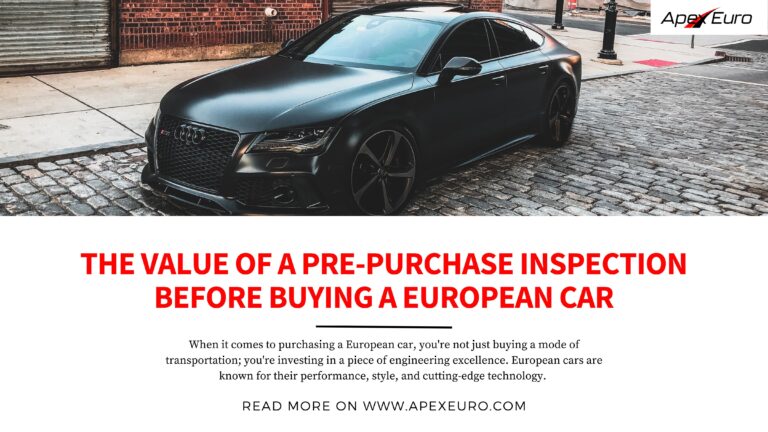When it comes to purchasing a European car, you’re not just buying a mode of transportation; you’re investing in a piece of engineering excellence. European cars are known for their performance, style, and cutting-edge technology. However, they also come with a reputation for high maintenance costs. To ensure that your investment is a wise one, it’s crucial to consider a pre-purchase inspection before sealing the deal. In this comprehensive guide, we’ll delve into the intricacies of why a pre-purchase inspection is indispensable when purchasing a European car.

Before we delve into the specifics, let’s clarify what a pre-purchase inspection (PPI) entails. A PPI is a comprehensive assessment of a vehicle’s condition, conducted by a professional mechanic or technician. It’s a thorough examination of all the crucial components and systems of the car to identify any existing issues, potential problems, or signs of wear and tear.